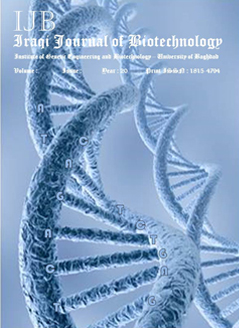Detection of Anti-Lysozomal Antibodies and Beta-2-Microglobulin Protein in Patients with Typhoid Fever
Abstract
Infection with many microbial agents can cause aberration in immune response through molecular mimicry or prolonged stimulation of immune system. Salmonella, the causative agent of typhoid fever, may have this feature. This study aimed to explore the possible association of serum levels of anti-lysozymal IgG antibodies (ALIA) and beta-2 microglobulin (B2M) with typhoid fever. A total of 52 typhoid fever patients and 35 healthy controls were recruited for this study. From each participant, a blood sample was obtained from which serum was separated. Enzyme linked immunosorbent assay was used to estimate serum levels of anti-lysozymal IgG antibodies and B2M. Patients with typhoid fever had higher significantly serum levels of ALIA than control (5.136±3.345 U/ml and 2.946±3.257 respectively), while there was no significant difference in serum levels of B2M between the two groups (0.889± 0.766 µg/ml and 1.173±0.81 µg/ml respectively). These results indicate that infection with Salmonella can cause increase in serum level of anti-lysozymal IgG antibodies but not beta-2 microglobulin.


